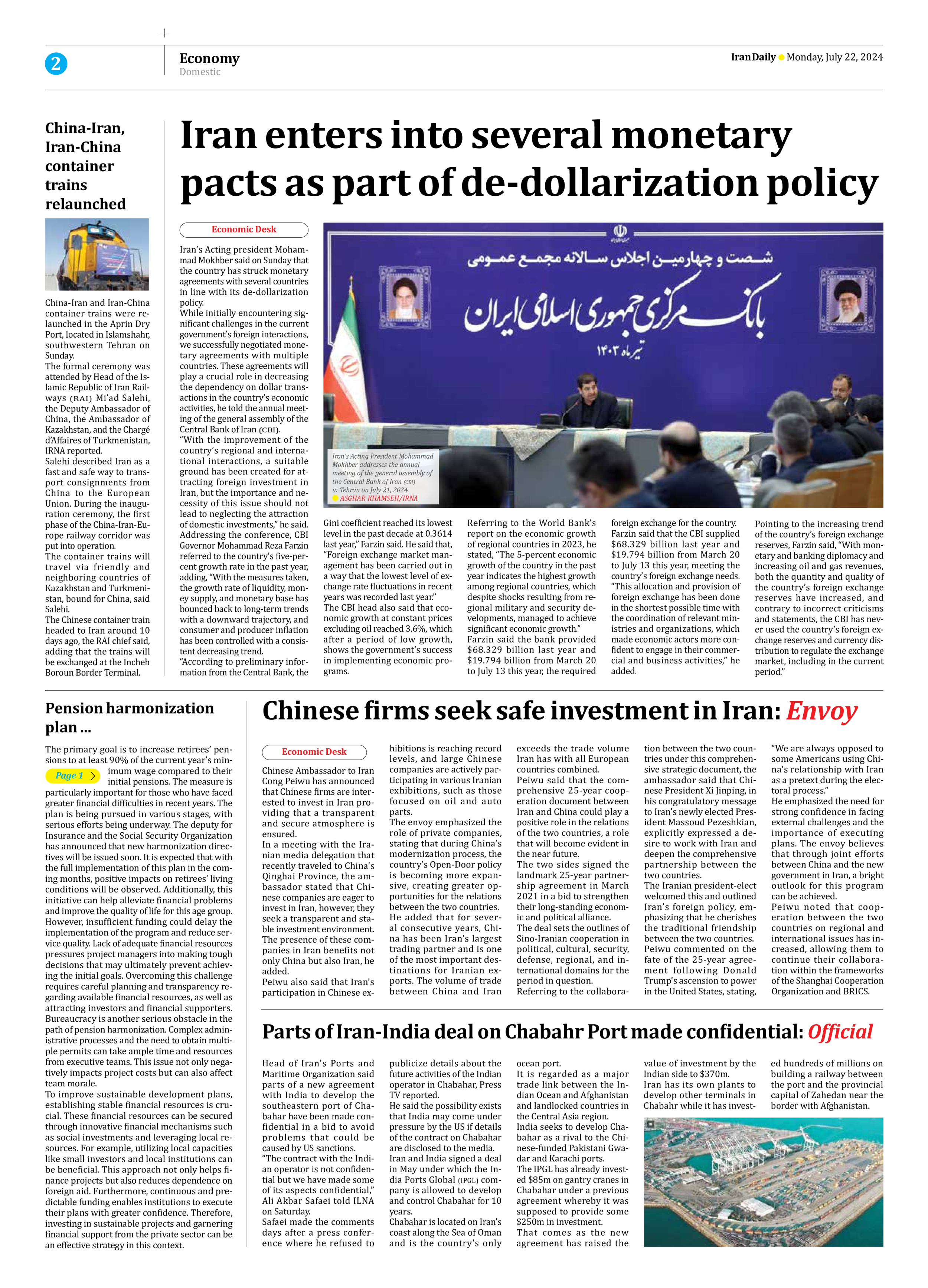
Iran enters into several monetary pacts as part of de-dollarization policy
Iran’s Acting president Mohammad Mokhber said on Sunday that the country has struck monetary agreements with several countries in line with its de-dollarization policy.
While initially encountering significant challenges in the current government’s foreign interactions, we successfully negotiated monetary agreements with multiple countries. These agreements will play a crucial role in decreasing the dependency on dollar transactions in the country’s economic activities, he told the annual meeting of the general assembly of the Central Bank of Iran (CBI).
“With the improvement of the country’s regional and international interactions, a suitable ground has been created for attracting foreign investment in Iran, but the importance and necessity of this issue should not lead to neglecting the attraction of domestic investments,” he said.
Addressing the conference, CBI Governor Mohammad Reza Farzin referred to the country’s five-percent growth rate in the past year, adding, “With the measures taken, the growth rate of liquidity, money supply, and monetary base has bounced back to long-term trends with a downward trajectory, and consumer and producer inflation has been controlled with a consistent decreasing trend.
“According to preliminary information from the Central Bank, the Gini coefficient reached its lowest level in the past decade at 0.3614 last year,” Farzin said. He said that, “Foreign exchange market management has been carried out in a way that the lowest level of exchange rate fluctuations in recent years was recorded last year.”
The CBI head also said that economic growth at constant prices excluding oil reached 3.6%, which after a period of low growth, shows the government’s success in implementing economic programs.
Referring to the World Bank’s report on the economic growth of regional countries in 2023, he stated, “The 5-percent economic growth of the country in the past year indicates the highest growth among regional countries, which despite shocks resulting from regional military and security developments, managed to achieve significant economic growth.”
Farzin said the bank provided $68.329 billion last year and $19.794 billion from March 20 to July 13 this year, the required foreign exchange for the country.
Farzin said that the CBI supplied $68.329 billion last year and $19.794 billion from March 20 to July 13 this year, meeting the country’s foreign exchange needs.
“This allocation and provision of foreign exchange has been done in the shortest possible time with the coordination of relevant ministries and organizations, which made economic actors more confident to engage in their commercial and business activities,” he added.
Pointing to the increasing trend of the country’s foreign exchange reserves, Farzin said, “With monetary and banking diplomacy and increasing oil and gas revenues, both the quantity and quality of the country’s foreign exchange reserves have increased, and contrary to incorrect criticisms and statements, the CBI has never used the country’s foreign exchange reserves and currency distribution to regulate the exchange market, including in the current period.”







